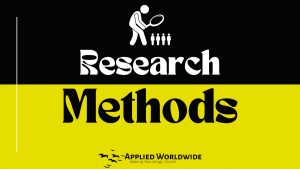Thanksgiving, a beloved holiday in the United States, is traditionally seen as a time for families and friends to come together and give thanks for their blessings. Yet, beneath the surface of this festive occasion lies a complex web of societal issues, including class, race, and gender inequalities. In this blog, we will critically analyze Thanksgiving from a sociological perspective, exploring how this seemingly benign holiday can perpetuate and even exacerbate these inequalities in our Critical Sociology of Thanksgiving.
Critical Sociology of Thanksgiving and Class Inequality
Thanksgiving, at its core, is a celebration of abundance and gratitude. However, this celebration often inadvertently highlights the stark class divisions in society.
Consumerism and Economic Pressure
Thanksgiving has become heavily commercialized, with grocery stores and advertisers pushing the idea of the perfect holiday feast. Families from different economic backgrounds feel varying degrees of pressure to conform to these expectations. While some can afford lavish spreads, others struggle to put food on the table, creating a stark contrast that reinforces class inequalities.
Labor and Service Workers
Behind every Thanksgiving dinner, there are numerous individuals who work long hours on or around the holiday, including retail employees, restaurant staff, and delivery drivers. Many of these workers often belong to lower-income brackets and are denied the opportunity to spend the holiday with their loved ones. This reality reflects a system where class inequalities are perpetuated as the more privileged can enjoy the holiday while the less fortunate are forced to labor.
Food Insecurity
Thanksgiving serves as a stark reminder of the issue of food insecurity in the United States. While some homes are filled with an abundance of food, others experience hunger and a lack of resources. This unequal access to a Thanksgiving meal underscores the systemic disparities in class, as those with more resources can celebrate the holiday with ease, while those without struggle to meet their basic needs.
Critical Sociology of Thanksgiving and Racial Inequality
Thanksgiving has a complex history intertwined within its legacy of colonization and the suffering of Native Americans. This history continues to resonate in contemporary racial inequalities.
Colonial Legacy
Thanksgiving commemorates the arrival of European settlers in North America, a pivotal moment in the colonial history of the United States. This history includes violence, disease, and displacement of indigenous peoples, contributing to a legacy of injustice and racial inequality. While the dominant Thanksgiving narrative celebrates this history, it often overlooks the awful experiences of Native Americans.
Cultural Appropriation
Thanksgiving has become an occasion for cultural appropriation, with many people dressing in stereotypical “Indian” attire and perpetuating harmful stereotypes. This trivialization of indigenous cultures perpetuates racial inequality by reinforcing misconceptions and diminishing the struggles and contributions of Native Americans.
Systemic Racism
The racial disparities in access to resources, opportunities, and even healthcare are highlighted during Thanksgiving. Many Native American communities face higher rates of poverty and unemployment, making it difficult for them to enjoy the same level of Thanksgiving abundance as the majority population. This points to the broader issue of systemic racism that persists in the United States.
Critical Sociology of Thanksgiving and Gender Inequality
While Thanksgiving is often seen as a family-oriented holiday, it can also be a microcosm of gender inequalities that persist in society.
Gender Roles
Traditional gender roles can become amplified during Thanksgiving, with women often expected to take on the bulk of the preparation, cooking, and cleaning. This reinforces gender stereotypes that place the burden of domestic work on women, limiting their freedom and opportunities outside of the home.
Emotional Labor
The emotional labor associated with Thanksgiving, including managing family dynamics and mediating conflicts, often falls disproportionately on women. This hidden labor contributes to their mental and emotional burden, further perpetuating gender inequality.
Women in the Workforce
Thanksgiving brings to light the gender wage gap and the difficulty that many women face in balancing their professional lives with domestic responsibilities during the holiday season. This highlights the broader issue of gender inequality, as women continue to be overrepresented in low-wage and part-time jobs.
Final Thoughts on the Critical Sociology of Thanksgiving
Thanksgiving, as a seemingly benign holiday, provides an insightful lens through which to examine the persistent issues of class, racial, and gender inequality. By critically analyzing the holiday, we can better understand how societal disparities are reflected and reinforced during this time of gratitude and togetherness.
It is essential to recognize these issues and work toward a more equitable and inclusive celebration of Thanksgiving, fostering a society where all individuals, regardless of their background, can truly give thanks for their blessings. As we move forward, let us use this awareness as a catalyst for change, striving to create a more just and equitable world for everyone.







